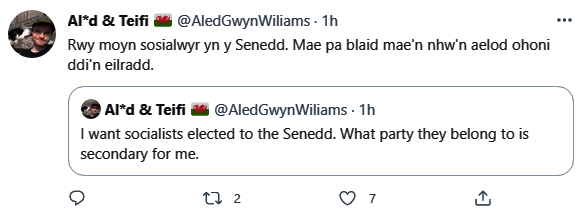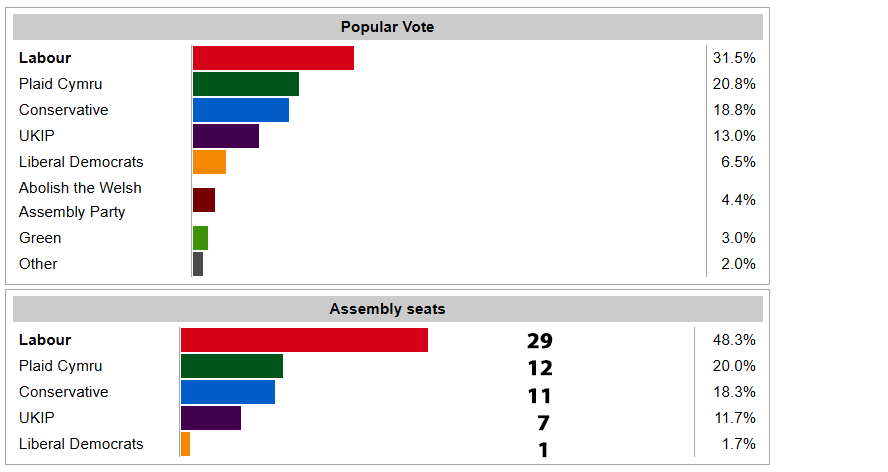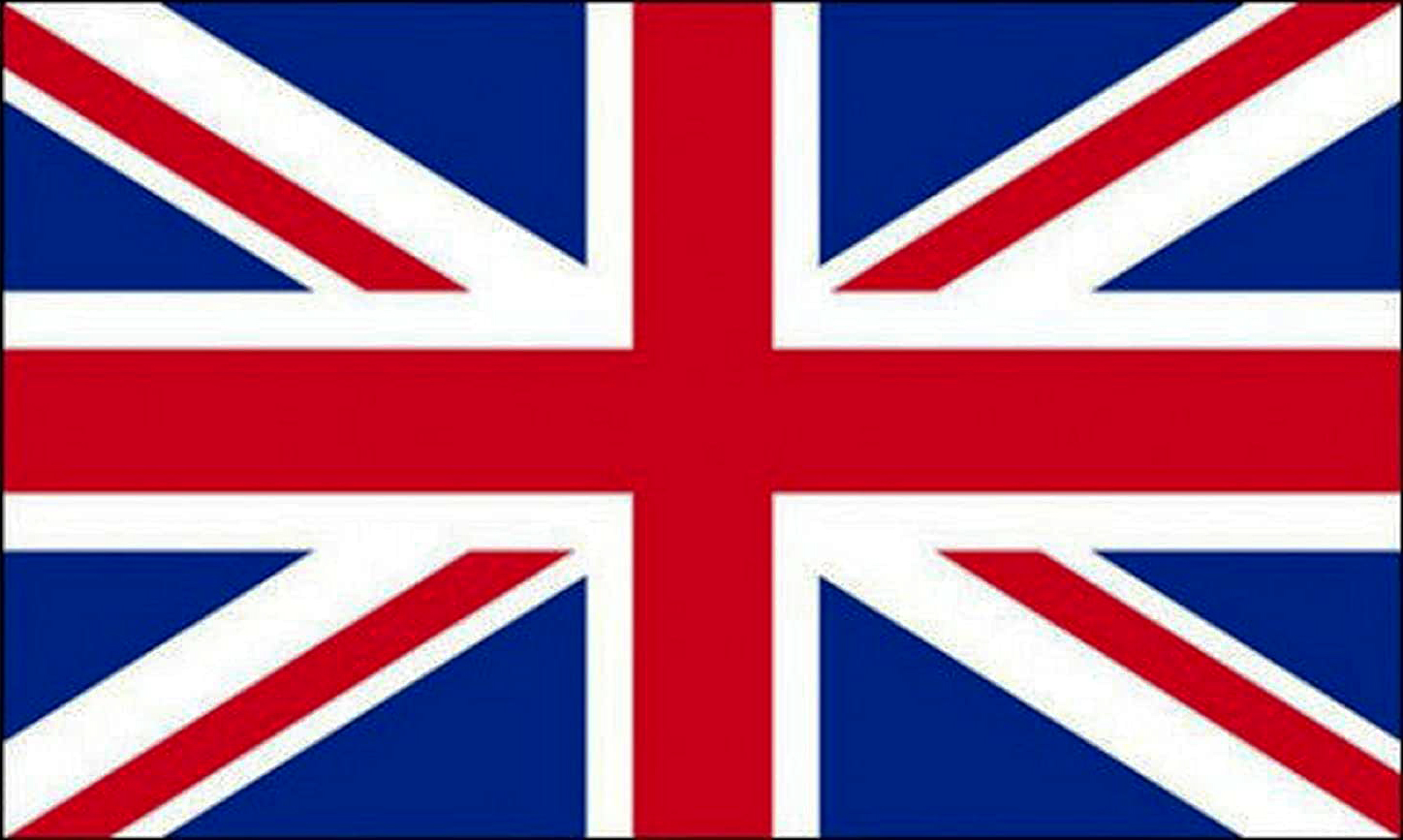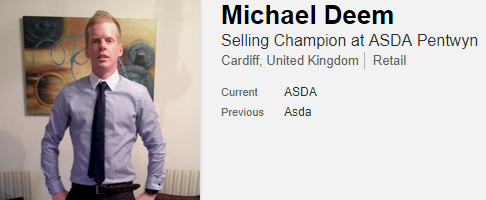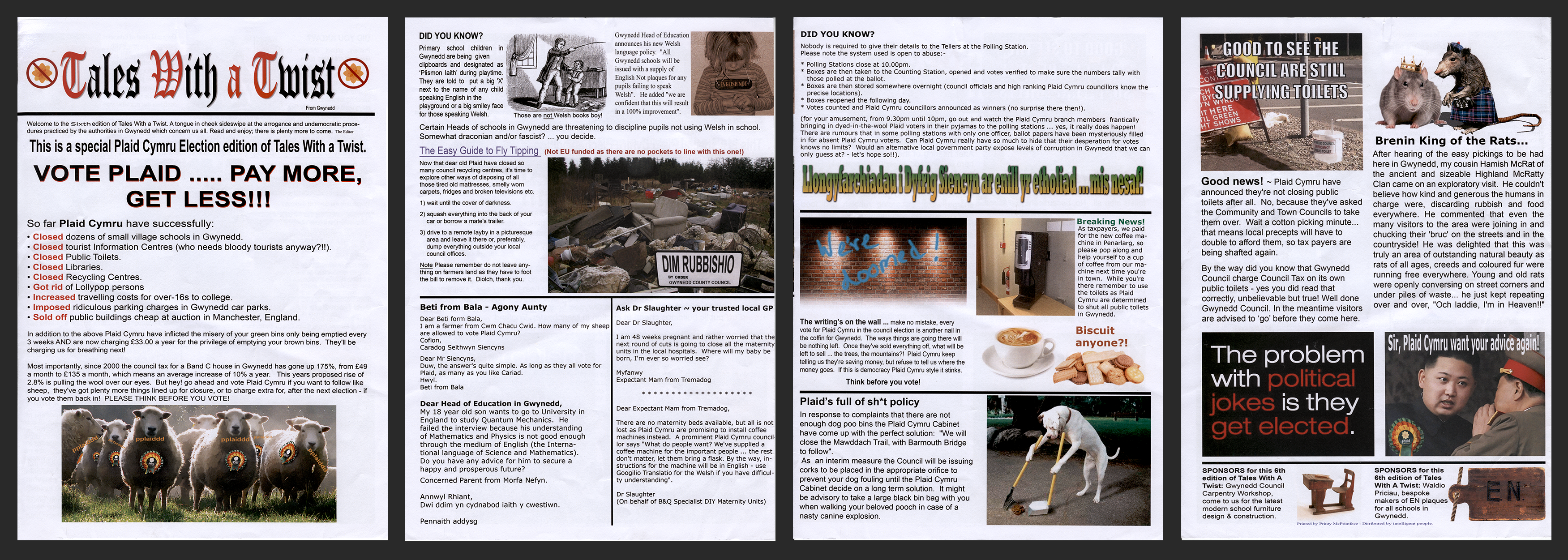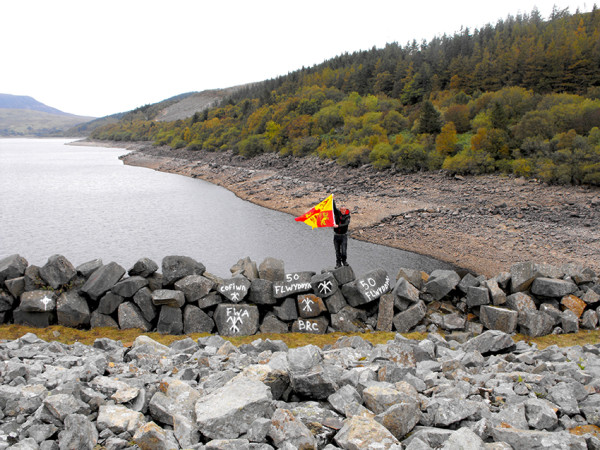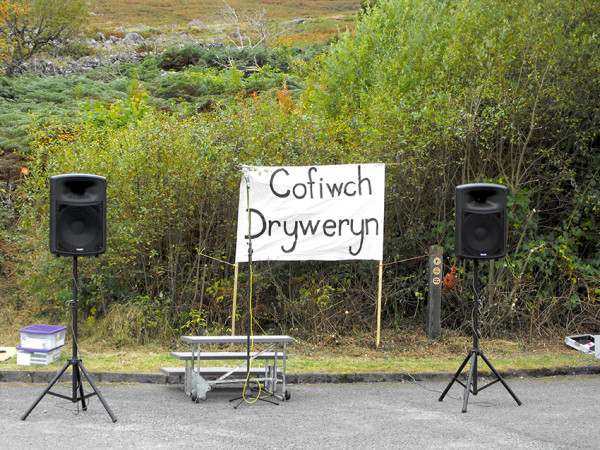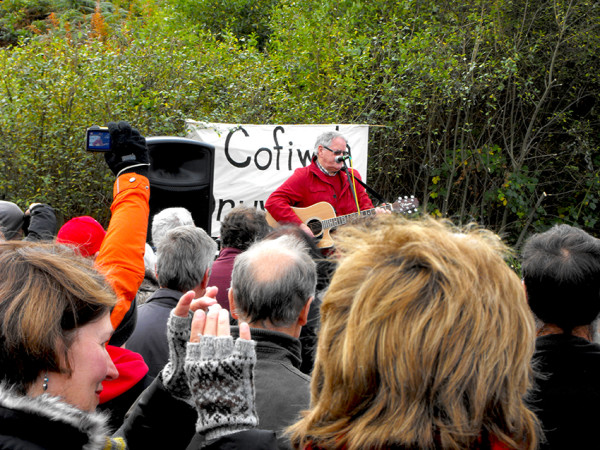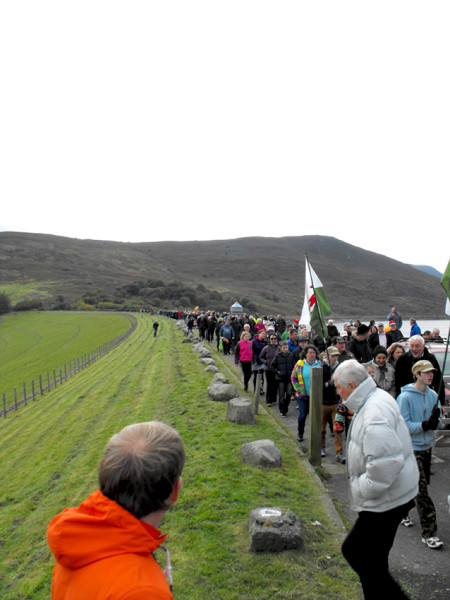I’M IN SEMI-RETIREMENT AND THIS BLOG IS WINDING DOWN. I INTEND CALLING IT A DAY SOON AFTER THIS YEAR’S SENEDD ELECTIONS. POSTINGS WILL NOW BE LESS FREQUENT AND I WILL NOT UNDERTAKE ANY MAJOR NEW INVESTIGATIONS. DIOLCH YN FAWR.
♦
![]() Well, the election is over, a rather disappointing election for the national cause and those wanting independence.
Well, the election is over, a rather disappointing election for the national cause and those wanting independence.
◊
Though the performance of Gwlad, the party to which I belong, was not surprising. A new party trying to get itself known in a pandemic, and almost ignored by the colonial media, was always going to struggle.
The other new party, Propel, is probably disappointed, and I’m not sure what went wrong. Though I do know that in the Cardiff West constituency dirty tricks may have affected party leader Neil McEvoy’s vote. Though perhaps not enough to cost him victory.
But the real under-achievers were, again, Plaid Cymru. With the 2016 figures bracketed, this was the party’s result last week: Seats 13 (12), constituency vote 20.3% (20.5%), regional vote 20.7% (20.8%).
Plaid Cymru’s disappointment didn’t end with the Senedd elections. In 2016 the party’s candidates won the Police and Crime Commissioner elections for North Wales and Dyfed Powys. Last week they lost North Wales.
Better was expected. One reason being that after 22 years of decline under Labour, and a bunch of Tory chancers running things up in London, it was felt that many voters would be seeking a third option.
Also, Plaid Cymru was supposed to be the main beneficiary of 16 and 17 year olds being given the vote.
Alas, it did not come to pass.
◊
TWO STEPS FORWARD, THREE STEPS BACK
The title of this week’s offering is of course something you’d have heard in cinemas when I was a bright young thing adorning the salons of Manselton, Brynhyfryd and contiguous neighbourhoods. (Yea, even unto Cwmbwrla and ‘the cowin’ Hafod’.)
I use the phrase here because the position of Plaid Cymru today is not greatly dissimilar to when I joined the party in the mid 1960s, before Gwynfor Evans’ famous Carmarthen by-election victory of July, 1966
Back then Plaid Cymru was perceived by most people to be a party for Welsh speakers, and for rural areas. Due to that perception, Plaid Cymru was unable to make much of an impression east of Carmarthen and Conwy.
What’s changed?
Well, obviously, Plaid Cymru now has MPs, and we have a devolved parliament . . . but as a political force, Plaid Cymru is penned into its western strongholds as much as it ever was in the past.
And yet, it could all have been so different. For in 1999, in the first Assembly elections, Plaid Cymru came within a fat whisker of winning. The threat of victory so frightened certain people, in Wales and elsewhere, that inspirational leader Dafydd Wigley was removed.
It was downhill for Plaid Cymru from then on.

To the point where Plaid Cymru’s plight today should surprise no one. Because the party now labours (no pun intended) under a double handicap, the second element self-inflicted.
To begin with, it is still perceived as a Welsh language party; second, it moved to the left – in the hope of taking Labour votes – at the same time as the (white) working class across the Western world was moving to the right.
The move to the left might have been in response to Tony Blair and his successor Gordon Brown making the Labour Party more centrist. If so, then it was a silly and damaging response to the success of New Labour.
◊
YES CYMRU
Since my previous pieces Hopes of Welsh independence being jeopardised by the hard left and Senedd elections: Hard left to win by stealth I’ve received more information about goings-on inside Yes Cymru.
I won’t say any more about Dr Dilys Davies and her treatment by that organisation because lawyers may now be involved. And as regular readers will know, I already have enough solicitors’ letters.

But there’s still plenty to report. First, here’s the agenda for the AGM on the 22nd.
Obviously there will be elections to the Yes Cymru Central Committee but there will also be discussion of submitted motions. Most of these appear to be procedural, so I’ll just mention Motions 1 and 2.

You will see in Motion 1 considerable emphasis on Central Committee members being or identifying as female or non-binary. These posts are unlikely to be filled by anyone you or I would regard as a woman. (Henceforth to be known as a ‘birthing person’.)
Which raises an interesting question.
Can someone decide to identify as a woman / birthing person simply to stand for election? Or to put it another way, for how long will someone have had to identify as such before they can stand? Is there a ‘qualification period’? (Should I have used the word ‘period’?)
Thinking about the whole issue of self-identification . . .
If someone can ‘identify’ as a woman / birthing person when they are clearly a man then should self-identification be restricted to the human race? For example, could I identify as a rabbit, then demand to be recognised as belonging to a persecuted group, and insist on joining Yes Cymru’s Central Committee? Because wabbits have all sorts of enemies, human and animal.
(Though I would insist that the Central Committee contained no one identifying as a fox or a stoat. We must not tolerate coneyphobes!)
Motion 2, to set up an Equality and Diversity Sub-committee, is an obvious attempt by the left and the wokies to further strengthen their grip on the running of Yes Cymru.
God only knows how Yes Cymru has survived for so long, and flourished, without an Equality and Diversity Sub-Committee.
Clearly, ‘diversity’ is being used to fill the Central Committee and other roles with more leftists. For almost all those being co-opted or put up for election under various labels are from the far left / woke faction.
Which means that in pursuit of ‘diversity’ Yes Cymru will in fact become less diverse, just more of a far left organisation.
But why would the far left and its wokie foot-soldiers want to take over Yes Cymru? Are they really that supportive of Welsh independence?
After sifting through information received, following various contributions on social media, and asking pertinent questions of people in the know, I think I’ve figured out the left’s plan.
◊
NO CYMRY?
Mark Hooper, prominent member of Plaid Cymru, heads up the Banc Cambria project, and he’s stepping down from the Central Committee of Yes Cymru at the upcoming AGM. I’ve always found Mark to be a decent bloke and, for a socialist, quite clubbable and real world rooted.
On Saturday Mark put out a curious tweet, which you can read below, together with a response.
Like Chantel Mathias, I too wondered what making Wales, “a safe space for everyone who chooses Wales as their home” has to do with the campaign for independence.
If it had just been Mark Hooper saying it then perhaps I might have passed over it and moved on, but I keep hearing this sentiment from others in Yes Cymru. Even from those seeking to join the Central Committee at the AGM.
For example, among the latter we find Scott Mackay of Yes Cymru Abertawe. His statement contains the phrase, ” . . . an inclusive, diverse Wales where anyone who wants to call it home is welcome”.

Laudable, no doubt. But what I found strange about Scott Mackay’s pitch to the YC members is that while he mentions “engaging with the Welsh independence movement” I’m not sure if he actually supports independence.
That’s because ‘engaging’ is such a strange word to use in this context. Kind of detached. I would have expected to read ‘joining’ or ‘supporting’.
Anyway, you know me; I may be a bastard but I try to be a fair-minded bastard, so I dropped Mark Hooper a DM: “You get a wee mention in tomorrow’s blog piece. What did you mean by “safe space for everyone who chooses Wales as their home”? Does that extend to the Cheshire Set who’ve taken over Abersoch? The retirees pricing locals out of the housing market and overburdening the NHS?”
He responded in his usual courteous fashion, but he didn’t answer my question.
Anyway, moving on . . .
Someone rejecting nomination to the Central Committee is Dr Jen Llywelyn. While one who yesterday announced that he was standing down is founder-member Iestyn ap Rhobert. I think both could be described as moderates who’ve focused on independence.

◊
LEFT TURN . . . FAR LEFT TURN
With moderates pulling out it would appear that the far left has been given a clear run. But let’s return to the question of why the far left would want to take over Yes Cymru, and how it might use that control.
There are a number of ways of looking at this.
To begin with, let’s remind ourselves that the far left’s influence in Plaid Cymru was slightly weakened when Leanne Wood so disastrously lost the 2018 leadership contest. More recently, the influence of the far left was curbed in the Labour Party after Jeremy Corbyn was toppled following the general election debacle in December 2019.
It’s in these parties that we find the far left in Wales. Being the beast it is, the far left is forever looking for fresh organisations to take over and use to promote the socialist message.
In the Welsh context, Yes Cymru, with its 18,000 members, was an obvious target. Those pre-Covid Yes Cymru marches were the most impressive shows of public support for any political cause that Wales has seen for decades. With all the flags and the good-natured crowds, who could fail to be impressed?
We can guarantee that the committee of the Karl Marx Social Club (Bingo Tuesday and Friday) were attracted. It explains what we now see being played out – a takeover of Yes Cymru by the hard left.

If the takeover is successful then Yes Cymru will go in for further ‘diversification’. In practice, this will mean issuing statements, perhaps organising marches, against the usual bugbears of the left: police brutality, Israeli brutality, racism, transphobia, Islamophobia, a Tory government in London, Robertsons golliwog badges being sold under the counter at car boot sales, etc., etc.
And of course, there will be support for unlimited immigration. Because the left always supports unlimited immigration. (Spouting ‘diversity’ and humanitarian considerations, but prepared to cause social dislocation in the hope of increasing the vote for leftist parties.)
And socialism is the driving force here, not considerations of what’s best for Wales, or the Welsh. Not so long ago Aled Gwyn Williams was a loyal and vocal member of Plaid Cymru, and remains influential in Yes Cymru (though he has been told to tone it down a bit), but socialism is what really matters to him.
Speaking of Williams, someone contacted my server claiming copyright infringement. This relates to images I’ve recently used on this blog, which I believe were picked up from Twitter. They show Aled Gwyn Williams on his trip west to harass Dr Dilys Davies, and another showing Williams wining and dining with a few friends.
Who could have made this complaint? Will it result in yet more correspondence from yet another shyster lawyer?
I suggest the sentiments we’ve heard expressed show support for unlimited immigration because the ‘Welsh Government’ already has a plan to make Wales a ‘Nation of Sanctuary’. The document I’ve linked to is remarkable in a number of ways. Not least the fact that it differentiates between asylum seekers and refugees, but finds no room to mention economic migrants.
Suggesting that this document, like so many carrying the imprimatur of the ‘Welsh Government’ was written by a third sector group hoping to squeeze more money out of a poor country.
This would certainly explain the talk of,” . . . an inclusive, diverse Wales where anyone who wants to call it home is welcome”.
And as I suggested in my DM to Mark Hooper, if you believe in open borders then you must accept the ethnic cleansing taking place in our rural areas, and especially in our coastal communities.

Nor can those holding up the Croeso! banners complain about Welsh communities being blighted by drug addicts and petty criminals dumped on them by third sector bodies working with private landlords and housing associations.
This social dumping has been a problem on the north coast for decades, especially in Rhyl. But now southern towns with cheap properties are experiencing it. Towns such as Llanelli, Neath, and even Briton Ferry.
But everybody is welcome in diverse and inclusive Wales! No matter what the cost.
When the left takes over Yes Cymru it will have far more important things to worry about than community cohesion, law and order, the economy, Welsh nationhood, Wales being colonised . . . or independence.
Because if it isn’t dropped entirely, then expect independence to become just one issue among many.
◊
LAST CHANCE
Yes Cymru members have one last chance to offer our people what Dr Craig Dalzell of Common Weal describes as a ‘Future neutral’ campaign for independence.
Yes Cymru must be a broad church, welcoming all who want independence, and it must focus solely on independence; because the alternative is an organisation in which unity is compromised by members being herded into different pens, classified by gender, race, sexuality, etc.
With the thought police deciding who is allowed in to what will quickly degenerate into just another far left protest group. Those same thought police will unleash the pack on anyone who dares challenge them, or expose their intolerance.
Just ask Dr Dilys Davies.
The odds are already stacked in favour of the left and the wokies because the proceedings of the 22nd will be online, which will favour their youthful supporters.
But if those with Wales’ best interests at heart are not prepared to stand up to the extremists and the obsessives then you can kiss goodbye to the Yes Cymru you joined. The Yes Cymru you helped build.
Because after May 22 it will exist in name only.
♦ end ♦


